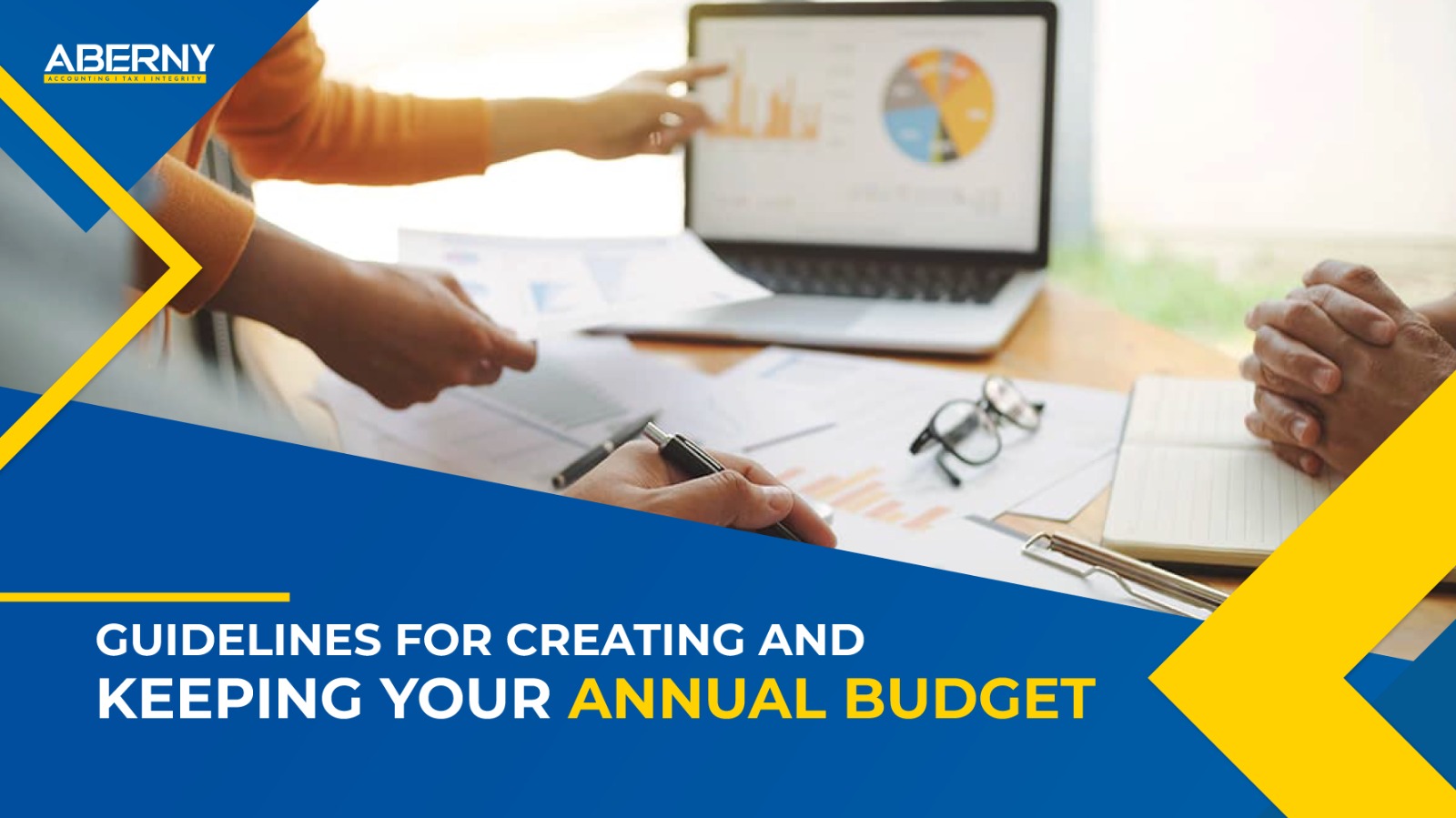



Indeed, the annual budget holds a different level of importance when it comes to managing business expenses and planning for the future. Whether you're looking to pay off debt, save for a down payment, or simply improve your financial situation - the annual budgeting process, helps in managing money efficiently while aligning all your financial goals. Although, budgeting is an essential component of financial planning which helps you stay on track… but, creating one can be extremely daunting.
Amidst the current challenging economic conditions, the budget becomes even more significant. However, with the looming recession and running rampant inflation, it is pretty difficult for business owners to manage their expenses, forecast their cash flow, and plan for the future – here only budgeting can help.
So, if you’re tired of constantly stressing about your finances and never having a clear understanding of where your money is going? This blog is purely for you - We will guide you through the process of developing your personalized yearly budget, so you don't need to search elsewhere for assistance. With our step-by-step approach and expert tips, you'll be well on your way to achieving your financial goals and living a more stress-free life.
Let’s dive into the details!

Remember that creating an annual budget is not a one-time event. It is an endless process that necessitates regular monitoring and adjustment. By adhering to these guidelines, you can create a realistic budget that will assist you in meeting your financial objectives.
Before you start crafting your budget, you must know what you're aiming for. Find out what you want to achieve financially in the coming year. Your goals will provide you with a clear understanding of what you want to achieve financially and help you create a plan to achieve them.
Once you have set your financial goals, you can start creating a budget to attain them. Your budgeting plan should be a reflection of your goals, taking into consideration your income, expenses, and savings. By setting clear and achievable financial goals, you can create a budget that will help you achieve the financial stability and security you desire.
Undoubtedly, the foundation of your efficacious annual budget process is your income. Don't get confused, we're talking about your take-home pay, total wages, or salary (inclusive of taxes, provident fund, health insurance, and retirement plan. Considering your total pay rather than your net earnings may result to excessive spending because you will start believing you have more money than you do.
If you work as a freelancer, contractor, gig worker, or are self-employed, keep detailed records of your payments to efficiently manage your irregular income while maintaining your annual budget.
Well, it is important for creating a flawless budget…. After identifying how much money is coming in, the very next step is to determine where it is going. Tracking and classifying your expenses can assist you in determining where you've been spending your hard earned money and where you may be able to save the most.
Begin by making a list of your fixed expenses. These are monthly expenses such as rent, mortgage, car, and utilities payments. Next, list down all of your variable expenses, which can vary each month, such as gas, groceries, and entertainment.
It's tempting to deceive yourself by undervaluing your expenses. This is a money-saving sin... and you will pay for it. Try to be accurate, and if you're unsure, guess larger rather than smaller - that way you'll have money left over rather than being short. Keep track of your outgoings throughout the year and fine-tune your budget as necessary. Use a budgeting app or may be spreadsheet can assist you stay on top of your finances.
Invest enough time to collect all of the information needed to create a detailed and accurate annual budget. Don't just look at the previous year's departmental expenses and payments. Your previous year's annual budget is significant but also look at the actual records to see if there are any shortfalls or surpluses in the budgeted items. When developing a spending plan, you have several approaches to consider, especially when presenting it. Of course, this will fluctuate depending on your industry, company, and department.
At the end of the year, review your budget and assess how well you did in achieving your financial goals. It's essential to reevaluate it and your spending frequently to guarantee you are on the right track. A few facets of your budget are fixed: you might get an increase, your expenditures might change, or you might reach a goal and want to set a new one. Whatever the reason, it is necessary for you to get into the habit of checking in with your complied budget often by following the steps mentioned above.
When it comes to financial management, creating an annual budget is one of the most crucial tasks you can undertake. An annual budget is a projection of your expected income and expenses for the upcoming year, and it helps you plan and prioritize your spending to achieve your financial goals.
The level of importance of an annual budget could vary depending on the financial state and goals. For some, creating an annual budget is a critical task that helps them manage their day-to-day expenses, pay off debts, and save for the future. For others, it may be a less urgent matter, but still a valuable tool for ensuring they are on track to meet their long-term financial objectives.
Regardless of your specific situation, an annual budget can help you gain a clear understanding of your financial situation and make informed decisions about your spending. It can help you identify areas where you can cut back on expenses, such as unnecessary subscriptions or non-essential purchases, and redirect those funds towards savings or paying off debts.
To be precise, it is a valuable tool for financial management and planning. Whether you are just starting out or have been budgeting for years, creating and regularly reviewing an annual budget can help you achieve financial stability and long-term success.
If you need help with your annual budget or need assistance with the annual budget process – get in touch with Aberny.